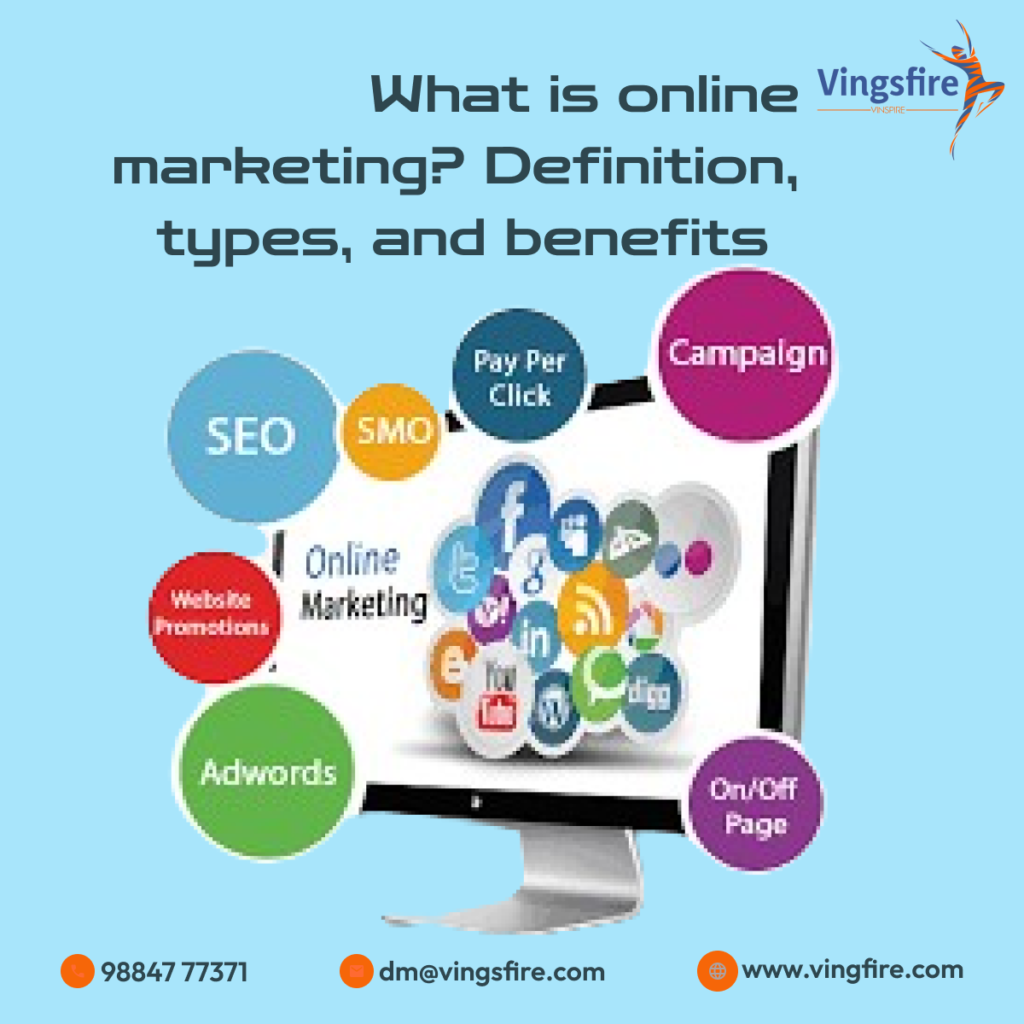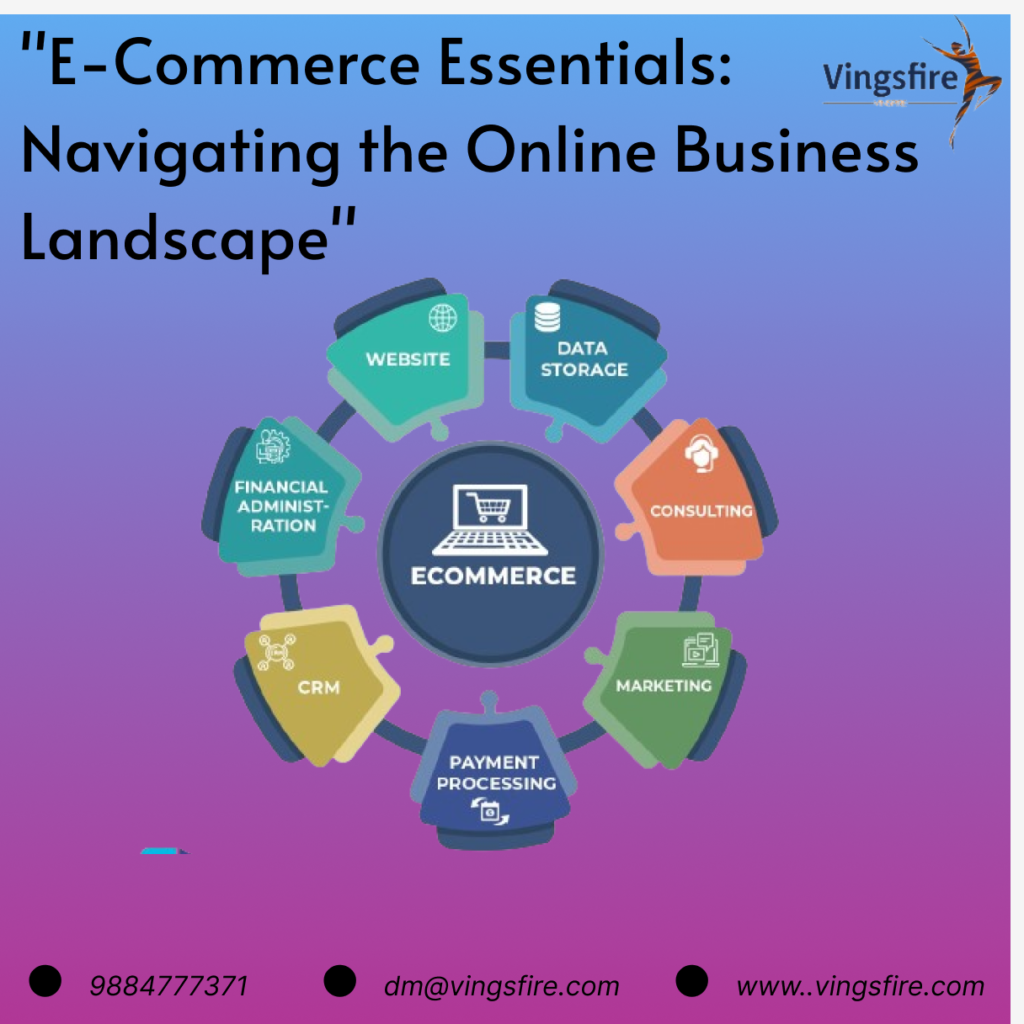
In the digital age, businesses are navigating a vast and dynamic landscape, and at the forefront of this transformative journey is online marketing. This powerful strategy has become synonymous with brand visibility, customer engagement, and business growth. In this comprehensive guide, we’ll unravel the essence of online marketing, exploring its definition, types, and the myriad benefits it offers to businesses aiming to thrive in the digital realm.
Defining Online Marketing
Online marketing, also known as digital marketing, refers to the use of internet-based channels, platforms, and technologies to promote products, services, or brands. It encompasses a wide array of strategies and tactics, allowing businesses to connect with their target audience, drive traffic, and foster meaningful relationships in the digital space.
Types of Online Marketing
- Search Engine Optimization (SEO): SEO is the art and science of optimizing a website to rank higher on search engine results pages (SERPs). It involves optimizing content, meta tags, and technical elements to enhance visibility and organic traffic.
- Social Media Marketing: Leveraging social media platforms, businesses engage with their audience, share content, and build brand awareness. Social media marketing includes paid advertising, influencer collaborations, and organic content creation.
- Content Marketing: Content is king in online marketing. Content marketing focuses on creating and distributing valuable, relevant, and consistent content to attract and retain a target audience. This includes blog posts, videos, infographics, and more.
- Email Marketing: Utilizing email to communicate with a target audience is a core component of online marketing. Email marketing involves sending targeted messages, newsletters, and promotional content to subscribers.
- Pay-Per-Click (PPC) Advertising: PPC advertising allows businesses to place ads on search engines and other platforms, paying a fee each time a user clicks on the ad. Google Ads and social media advertising are common examples.
- Affiliate Marketing: In affiliate marketing, businesses partner with affiliates who promote their products or services. Affiliates earn a commission for each sale or lead generated through their marketing efforts.
- Influencer Marketing: Collaborating with influencers—individuals with a significant online following businesses can tap into established audiences, leveraging the influencer’s credibility and reach for promotional purposes.
- Video Marketing: Video content has become increasingly popular. Video marketing involves creating and sharing videos on platforms like YouTube or social media to convey messages, showcase products, or engage with the audience.
- Online Public Relations (PR): Managing an online reputation is crucial. Online PR involves building positive relationships with online media, bloggers, and influencers to shape a positive brand image.
- Mobile Marketing: With the rise of mobile devices, businesses optimize their marketing strategies for mobile users. This includes mobile-responsive websites, app marketing, and SMS marketing.
Benefits of Online Marketing
- Global Reach: Online marketing breaks down geographical barriers, allowing businesses to reach a global audience without the constraints of traditional marketing methods.
- Cost-Effectiveness: Compared to traditional advertising, online marketing often proves more cost-effective. Businesses can allocate budgets more efficiently, targeting specific demographics with precision.
- Measurable Results: Online marketing provides robust analytics and tracking tools, enabling businesses to measure the performance of campaigns in real-time. Metrics like clicks, conversions, and engagement rates offer valuable insights.
- Targeted Advertising: With online marketing, businesses can target specific demographics, interests, and behaviors, ensuring that marketing messages reach the most relevant audience.
- Interactivity and Engagement: Online marketing allows for two-way communication between businesses and their audience. Social media interactions, comments on blog posts, and email responses foster engagement and build relationships.
- Flexibility and Adaptability: Digital marketing strategies can be adapted quickly to respond to market changes, trends, or shifts in consumer behavior. This flexibility is a significant advantage in the fast-paced digital landscape.
- Brand Building and Awareness: Consistent online presence across various channels helps build brand awareness. Engaging content, a cohesive brand image, and positive interactions contribute to a strong online brand presence.
- Higher Conversion Rates: Targeted and personalized online marketing campaigns often lead to higher conversion rates. By addressing the specific needs and interests of the audience, businesses can increase the likelihood of conversions.
- 24/7 Availability: Unlike traditional marketing channels, online marketing operates 24/7. Businesses can connect with their audience at any time, providing convenience for both the consumer and the business.
- Data-Driven Decision Making: The wealth of data available in online marketing allows businesses to make informed decisions. Analyzing data helps refine strategies, optimize campaigns, and allocate resources effectively.
Conclusion
Online marketing is a dynamic and ever-evolving landscape that offers businesses unprecedented opportunities for growth and success. Defined by its versatility, measurable outcomes, and vast array of strategies, online marketing is a cornerstone in the digital era. By understanding its types, embracing its benefits, and staying attuned to industry trends, businesses can navigate this transformative journey and harness the power of online marketing to propel their brands to new heights in the digital realm.

